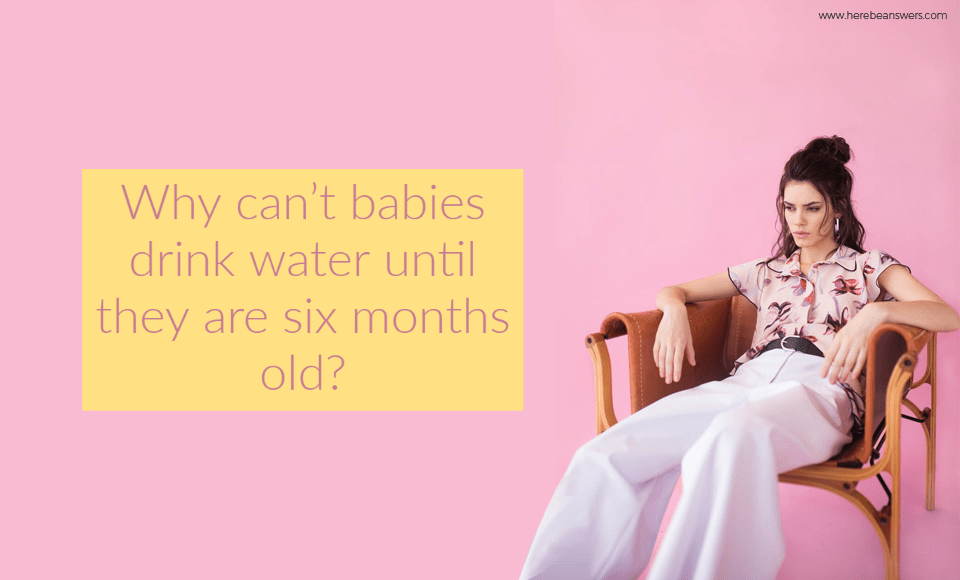Adults need to drink around eight glasses of water each day. However, have you ever wondered why babies aren’t supposed to chug water until they are six months old?
According to experts, babies must not drink water until such age as they get all the hydration they need from breast milk or milk baby formula. Moreover, for babies, drinking too much water may lead to terrible consequences. Extra water may alter the balance in their sodium level, which can result in seizures, brain damage, and even death.
If you feel that there’s a need to provide your baby with the additional water intake, it must be two to three ounces only and must be given after the baby has finished breastfeeding or gulping milk formula.
Babies who aren’t consuming any solid food yet must not be receiving water supplements regardless if they are breastfed or formula-fed. As mentioned, the milk can also satisfy all the nutrition and hydration that their bodies’ need for the first stages of their lives. Healthy babies no longer need extra water intake.
With that, some experts even suggest not allowing your babies to join swimming, as there are high chances that they will be chugging excess water. Continuous dunking of babies in the pool may cause them to swallow water, which has been sighted as one of the reasons for infants suffering seizures at the poolside.
The piece of advice is generally critical of the babies. Their systems aren’t designed and prepared yet to handle other fluids than breastmilk or milk formula. For babies who are breastfed, providing additional water supplements may also affect milk production. Keep in mind that breastfeedings act like a supply and demand system. If babies get milk from other sources, chances are they will be requiring breast milk as often, which then can lead to a decrease in production.
As medical institutions note, breast milk supplementation is integral in the first few days. If babies are provided with water, this places them at heightened risk for increased weight loss, excess bilirubin, lengthier stay at the hospital, and possible intoxication from water.
If in case your baby has consumed a lot of water, and symptoms of water intoxication, such as drowsiness, excessive urination, and irritability are present – call your doctor right away. Treatment should be done in the nearest hospital.
Given the said scenario, it is only imperative to devote extra caution when providing water to babies under 6 months old and who aren’t consuming any solid food yet. While some experts advise to let formula-fed infants drink water when there is extremely hot weather, that must be done in sheer moderation.
Remember that excess water, especially large amounts, is potentially dangerous for babies. Water intoxication may occur, which can be fatal for your little one. While it may not happen with few sips from time to time, it is something that you must treat with additional caution.
Well, you don’t need to do extreme precautions, such as keeping your baby away from every tiny drop of water they might encounter. However, it is always great to be aware of certain issues, and devote a little care in ensuring that your baby won’t chug large amounts of water.
Once your baby starts to eat solid food and milk is no longer their sole food source anymore, you can now start providing them water within their meals. Of course, make sure to introduce water into their system slowly, and not in large amounts. Water can help them in their digestion. As they grow and they start to consume more solid food, it is essential to let them drink more water as the fluid they get from breastmilk or milk formula begins to decrease.
But, again, for babies under 6 months old, let them have breast milk or milk formula. Your baby doesn’t need extra water yet and never let anyone tell you otherwise.
More Readings:
Infant (Wikipedia)
Related Posts:
